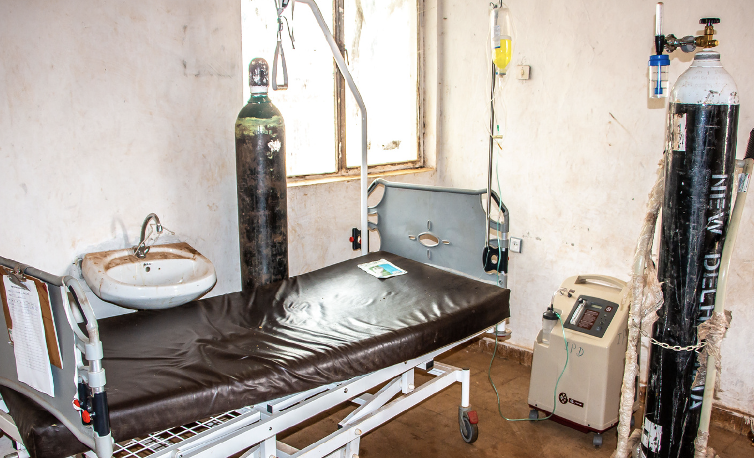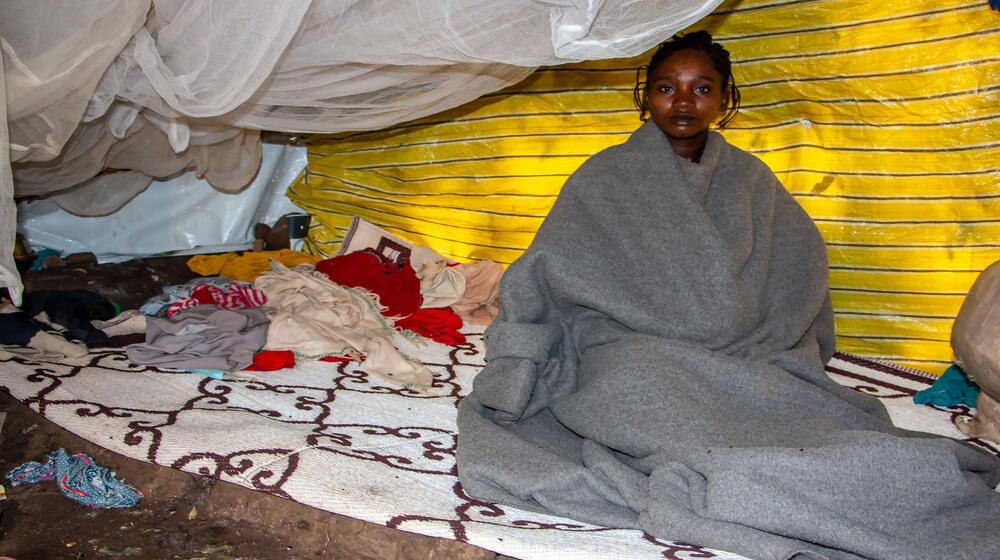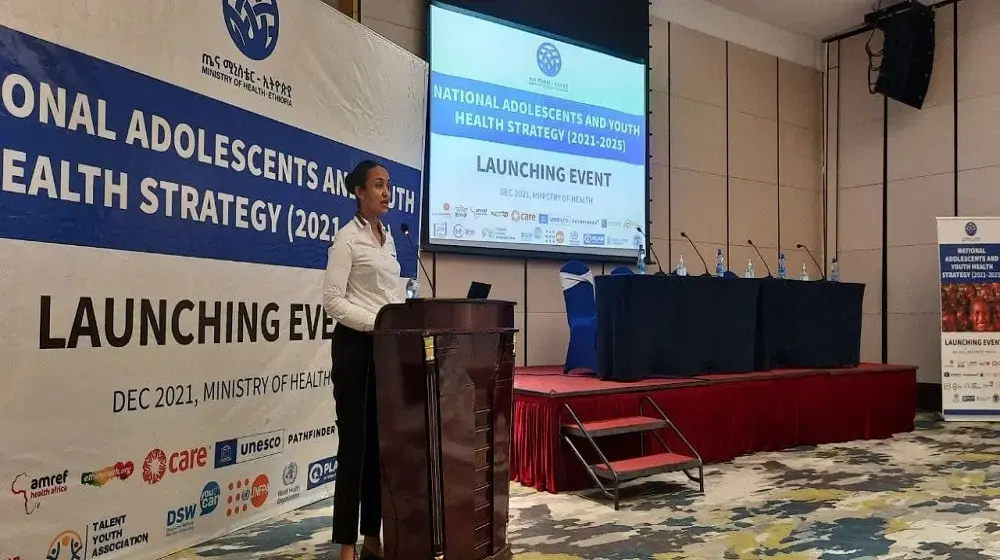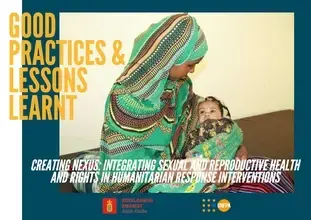KONSO, Ethiopia - “I was discharged from the health facility after a stillbirth without any medication or treatment. I have been bleeding ever since”, says Asnaketch at her tent at Haylota IDP site in Konso, a town in Southern Nations, Nationalities, and Peoples Region (SNNPR).
Asnaketch, a 25-year-old mother, mourns the loss of her second baby with her husband in an informal settlement after ethnic conflict broke out in their village, Gerchi, in the Konso zone. The most recent conflict in the area occurred in November 2020, killing dozens of civilians and displacing over 100,000 people.
“The whole village was burnt to the ground. When the clashes erupted, we had to move here. I lost my first son due to a complication when we were fleeing. Now, I lost my second one,” says Asnaketch with affliction.
Across SNNP Region, there are more than 200 thousand internally displaced people living in informal and sub-standard sites, with limited access to basic services and life-saving health care.

The nearest health facility is almost a grueling two hours trek from the Haylota IDP camp through the mountainous terrain. “They carried me on a wooden stretcher all the way. It was very difficult for me. I knew something was wrong with my baby,” Asnaketch explained to UNFPA.
Women and newborns at considerable risk
The reproductive health services in the Southern Nations, Nationalities, and Peoples’ Region were already over-stretched even before the conflict-induced humanitarian situation which put more than 2 million people in need of humanitarian assistance. The health services were hit with a shortage of service providers, lack of supplies and equipment, and damage to facilities due to the conflict
Like Asnaketch, many families had mourned a loss in the camp. “More women have lost their babies in the last months. This is an enormous, yet overlooked tragedy,” indicated one of the officials at the Haylota IDP site whose identity is concealed for protection.
“Ensuring basic emergency obstetric and newborn care is a challenge. We can’t provide assisted vaginal delivery either. There is no medication, equipment, or even mattresses”, said the Segen Health Center Manager during a rapid assessment conducted by UNFPA in the area.
Despite the critical importance of antenatal and postnatal care services in reducing maternal and newborn mortality and morbidity, services are minimal or nil as a result of the conflict, placing mothers and newborns at grave risk.
Thousands of women and girls in need of maternal and reproductive health care support
Across SNNPR, more than 110,000 pregnant women, and nearly 17,000 are estimated to experience some type of obstetric complication with potentially deadly consequences.
Last year, UNFPA supported 17 health facilities with Emergency Reproductive Health Kits, capacity-development training for medical staff, and 2 ambulances to strengthen the referral system to manage obstetric complications in the conflict-affected Gedeo and West Guji zones in SNNP and Oromia regions respectively. In addition, UNFPA established One-Stop Centers and 10 Adolescent and Youth Corners to ensure the provision of youth-friendly integrated SRH services.
Despite all efforts to increase the coverage of maternal and reproductive health services, much support is needed to respond to the needs of women and girls affected by conflict and climate-related shocks in the region.
The UNFPA Humanitarian Response appeal of nearly $20 million will support the strengthening of the health system and build back the capacities on maternal and reproductive health services in SNNP and other 7 crisis-affected regions in the country through the end of 2022. To date, 76% of the humanitarian appeal remains unfunded.
For Asnaketch, the loss of her baby was an agonizing experience, yet her family is grateful for the second chance at life with which she was blessed: “I am alive. I survived. There is a lot to be grateful for”.





